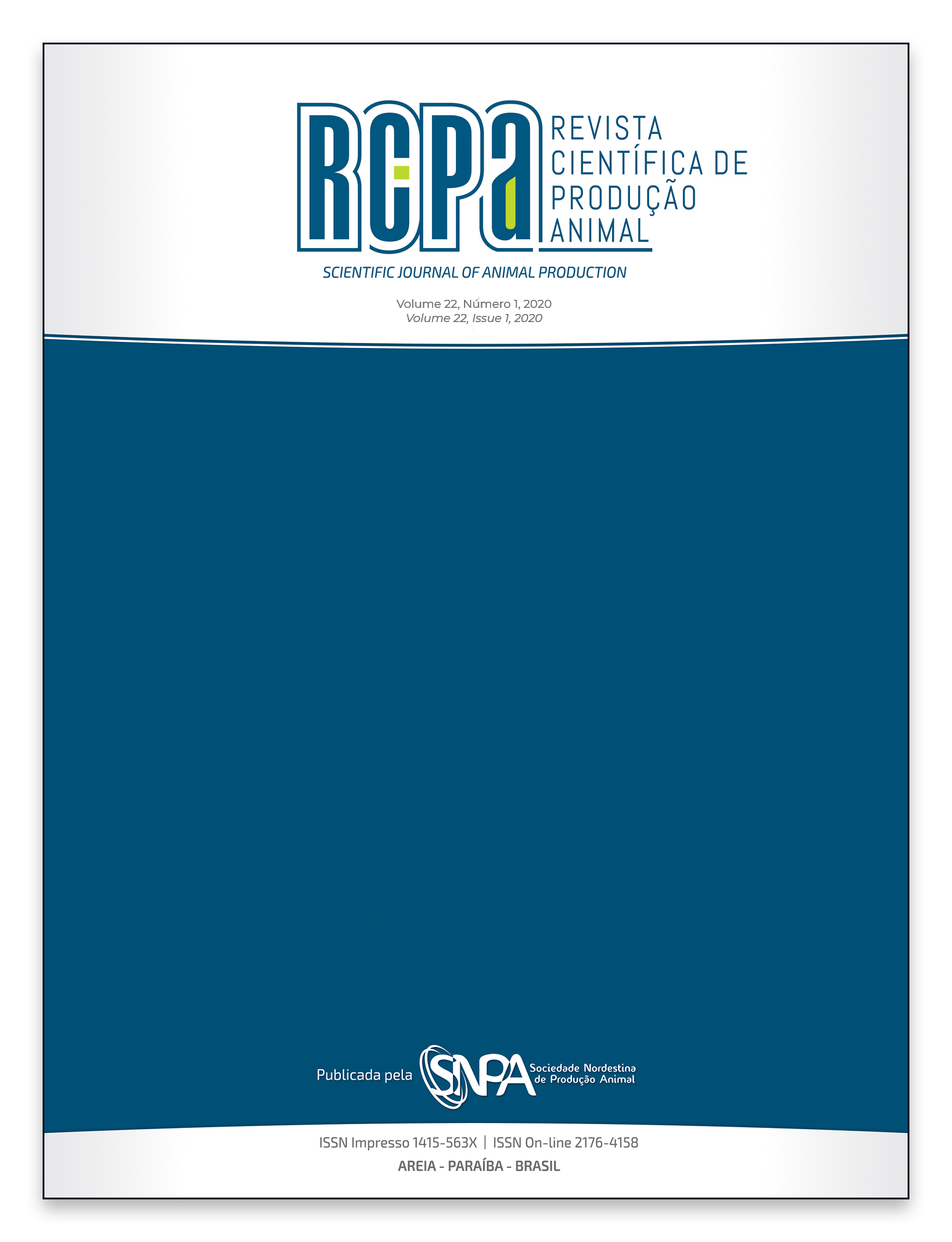1,25-Dihydroxyvitamin D3-glycoside of herbal origin in diets for laying Japanese quails
Resumo
The aim of the study was to evaluate supplementation with 1,25-dihydroxyvitamin-D3-glycoside (1,25(OH)2D3) of plant origin in diets for laying Japanese quails from 36 to 45 weeks of age. It was used a randomized block design, with five treatments: 0.0; 0.25; 0.50; 0.75 and 1.00 μg of 1,25(OH)2D3 kg-1 diet; with six replicates and six birds per experimental unit. There were no significant effects (p>0.05) of 1,25(OH)2D3 on the productive traits: feed intake, egg production per day and per housed bird, commercial egg production, average egg weight, egg mass, feed conversion per dozen eggs and egg mass. The addition of 0.75 μg of 1,25(OH)2D3 kg-1 feed provided higher shell thickness and percentage ash in the eggshells (p<0.05). The weights and respective relative percentages of heart, liver, gizzard, pancreas, intestinal length and mineral excretion were not affected by the vitamin. It is concluded that the supplement 1,25(OH)2D3 kg-1 of plant origin in diets for Japanese quail does not affect productivity, excreta and biometrics of organs of the digestive system; however, improves the quality of the eggs.
Downloads
Downloads
Publicado
Como Citar
Edição
Seção
Licença
Autores que publicam nesta revista concordam com os seguintes termos:- Autores mantém os direitos autorais e concedem à revista o direito de primeira publicação, com o trabalho simultaneamente licenciado sob a Licença Creative Commons Attribution que permite o compartilhamento do trabalho com reconhecimento da autoria e publicação inicial nesta revista.
- Autores têm autorização para assumir contratos adicionais separadamente, para distribuição não-exclusiva da versão do trabalho publicada nesta revista (ex.: publicar em repositório institucional ou como capítulo de livro), com reconhecimento de autoria e publicação inicial nesta revista.
- Autores têm permissão e são estimulados a publicar e distribuir seu trabalho online (ex.: em repositórios institucionais ou na sua página pessoal) a qualquer ponto antes ou durante o processo editorial, já que isso pode gerar alterações produtivas, bem como aumentar o impacto e a citação do trabalho publicado (Veja O Efeito do Acesso Livre).





